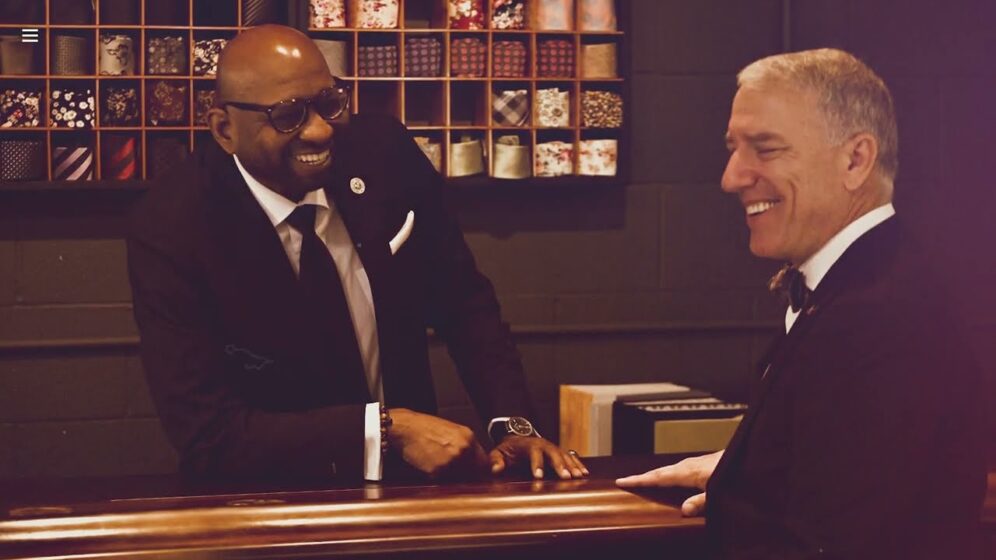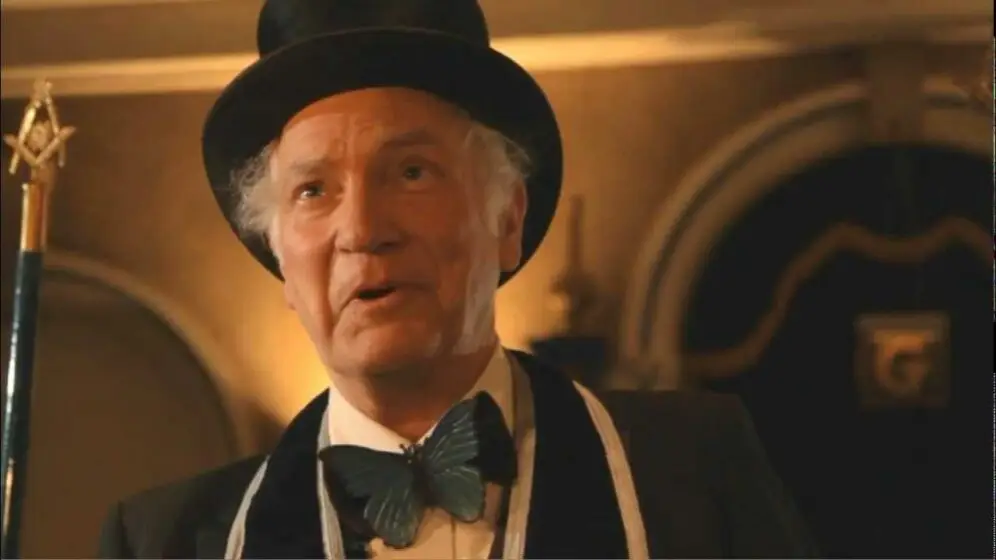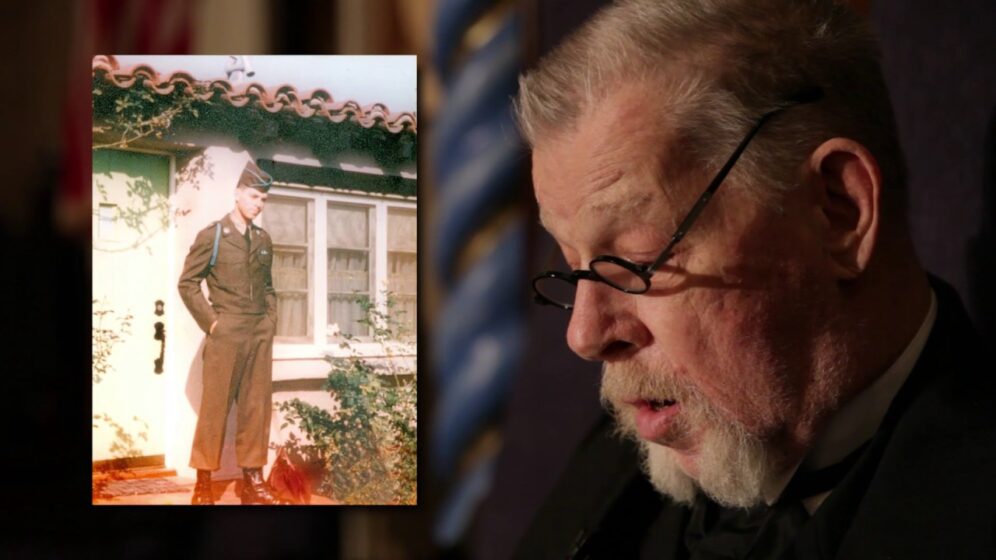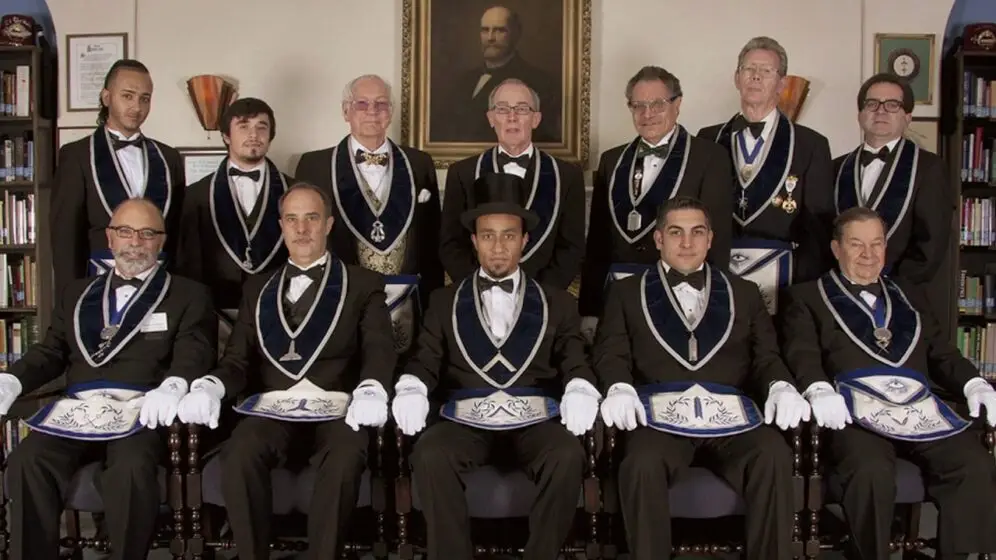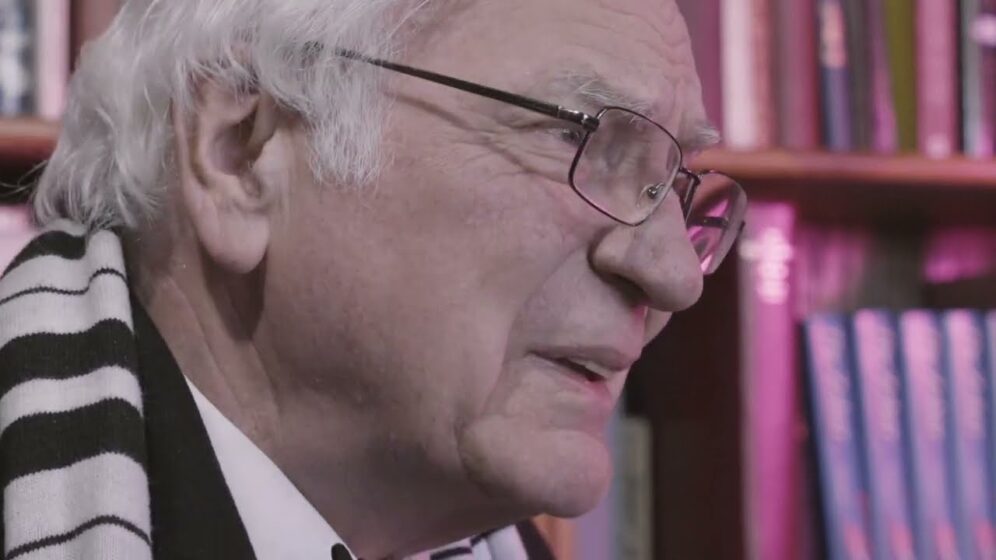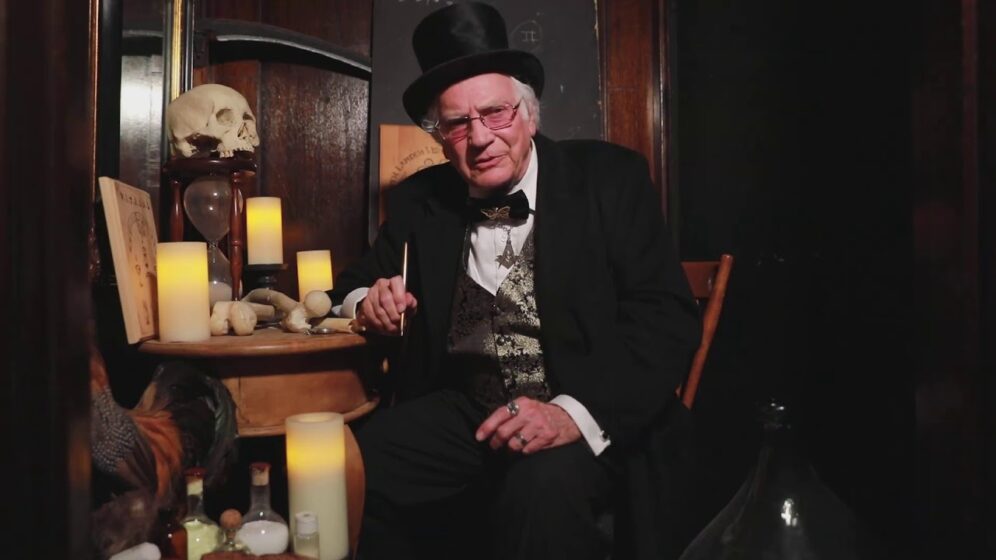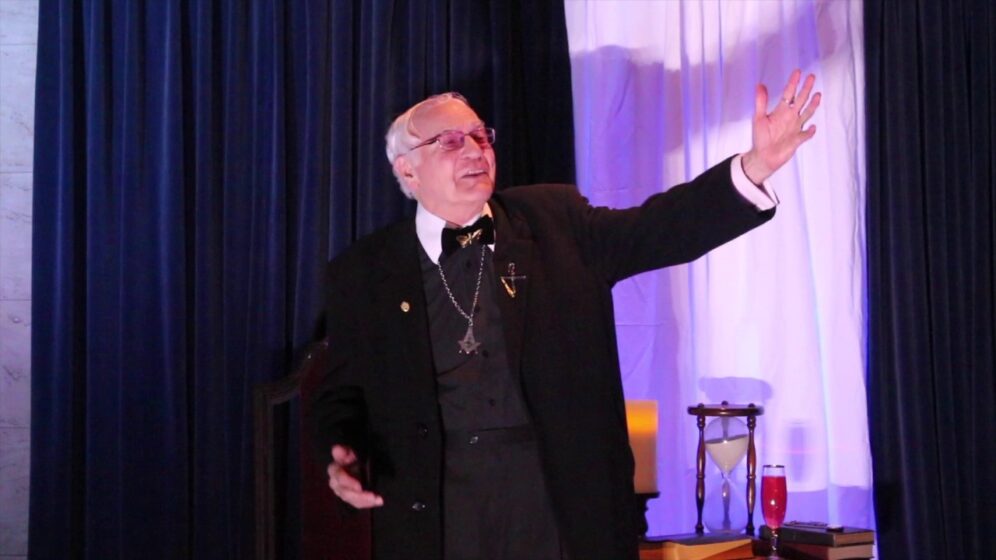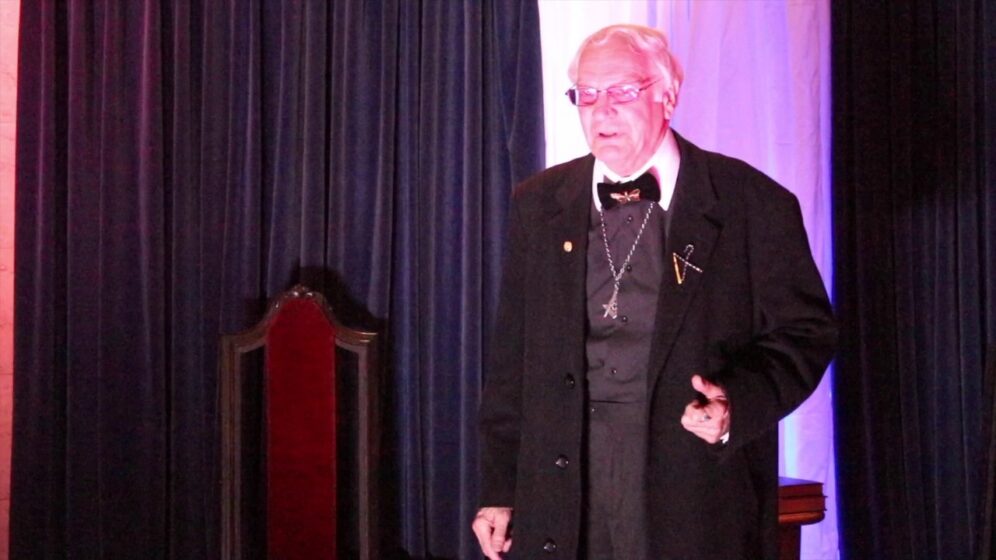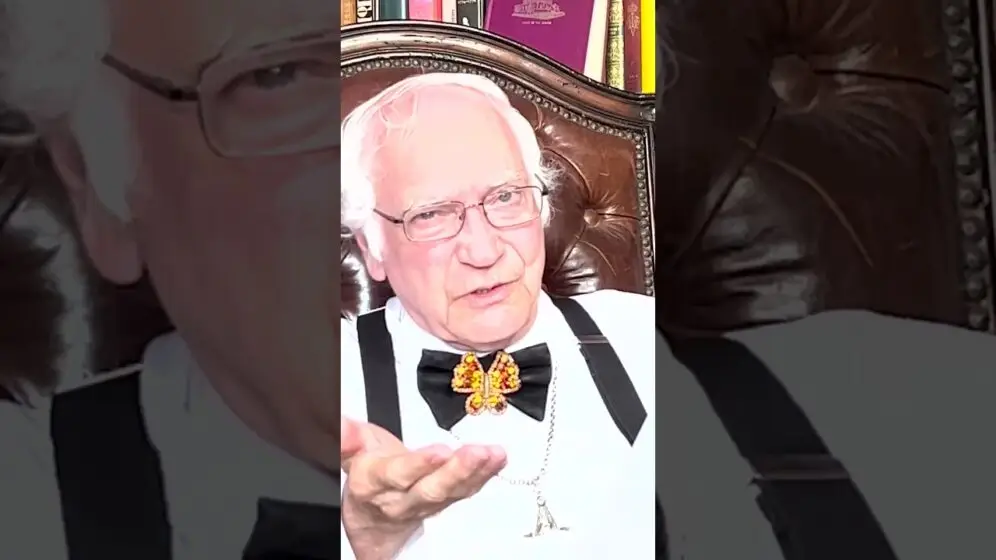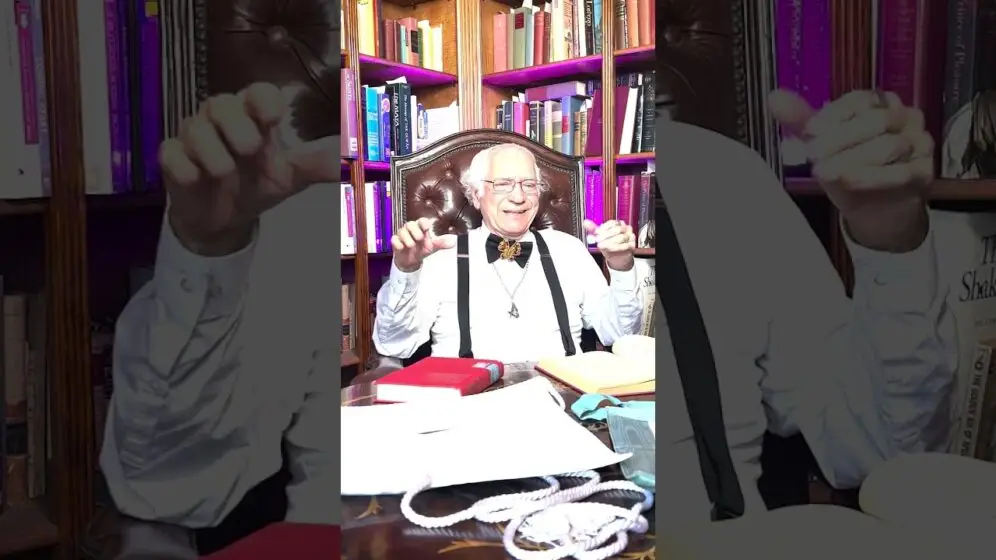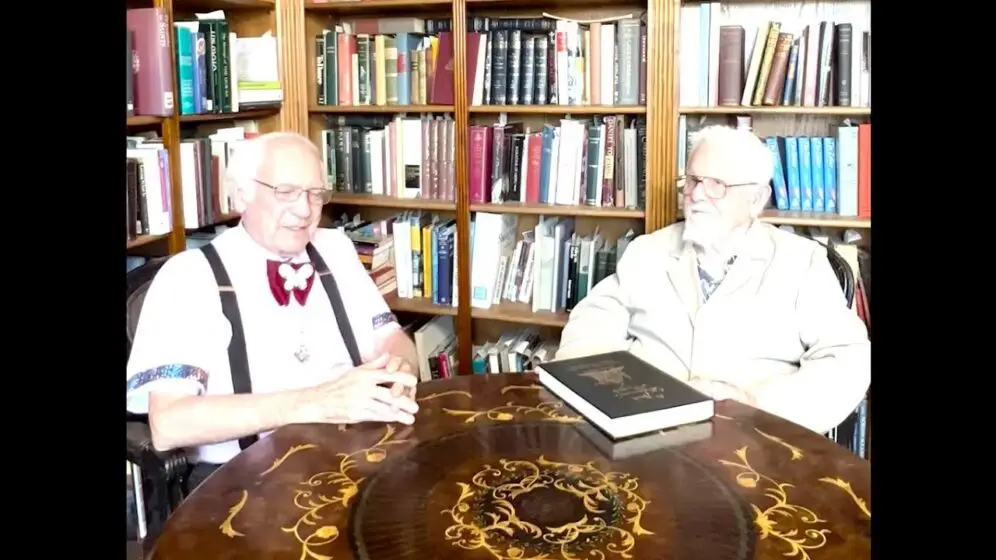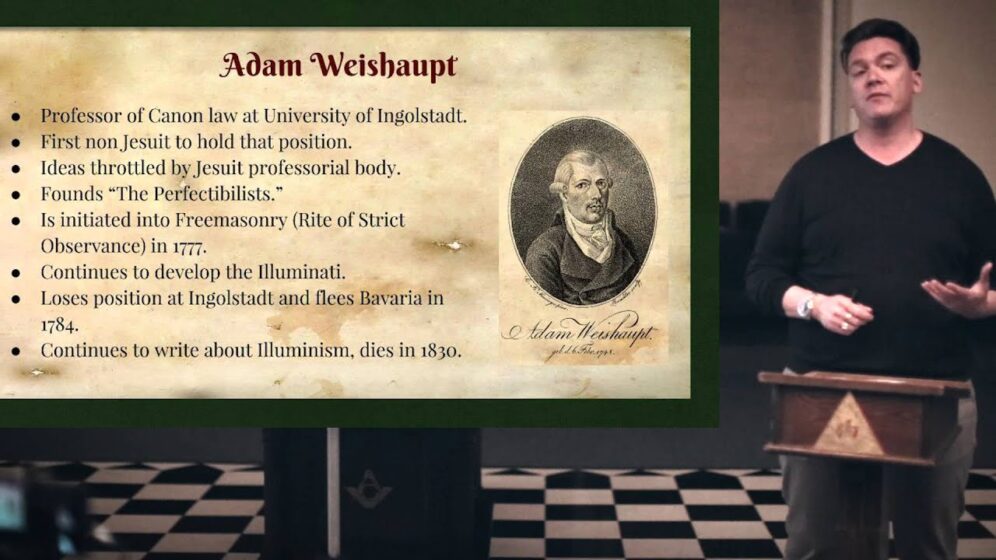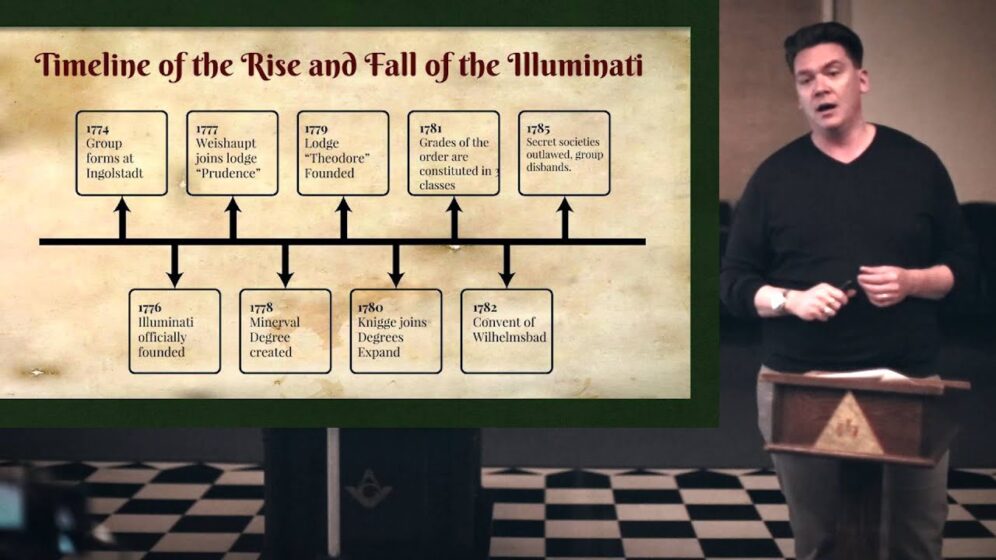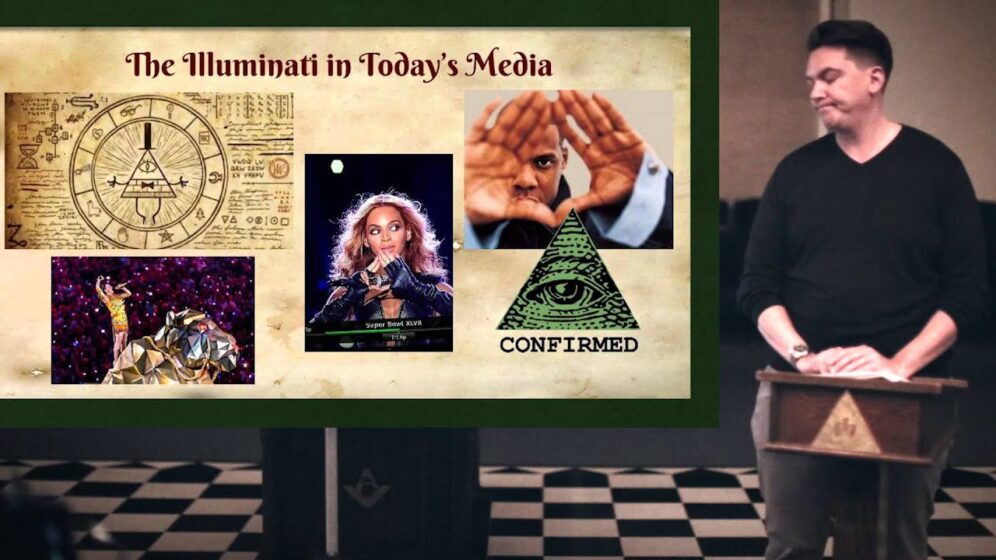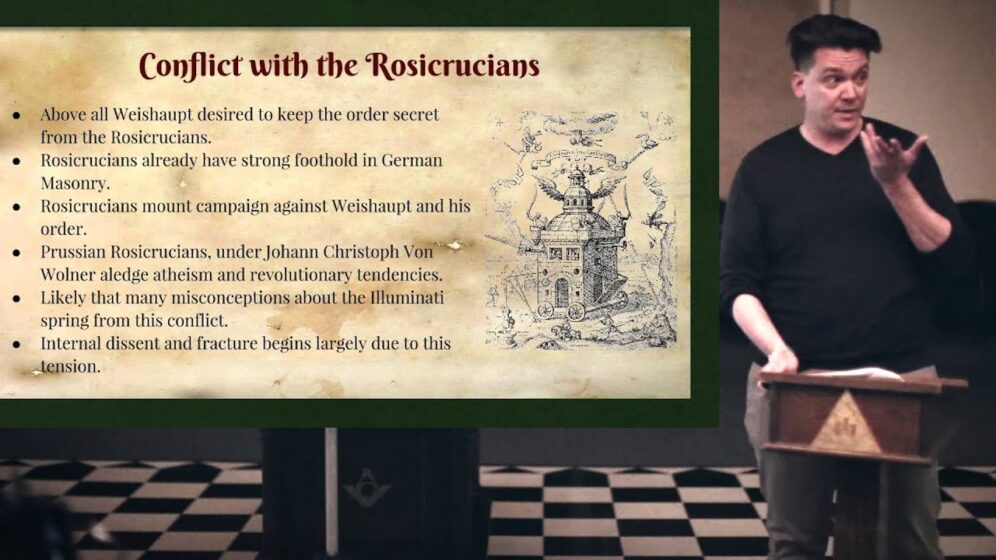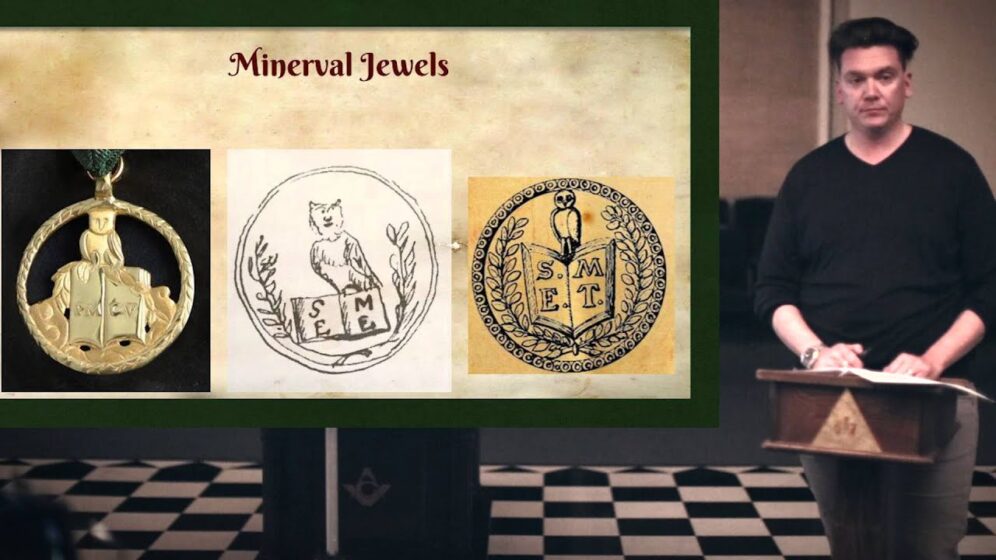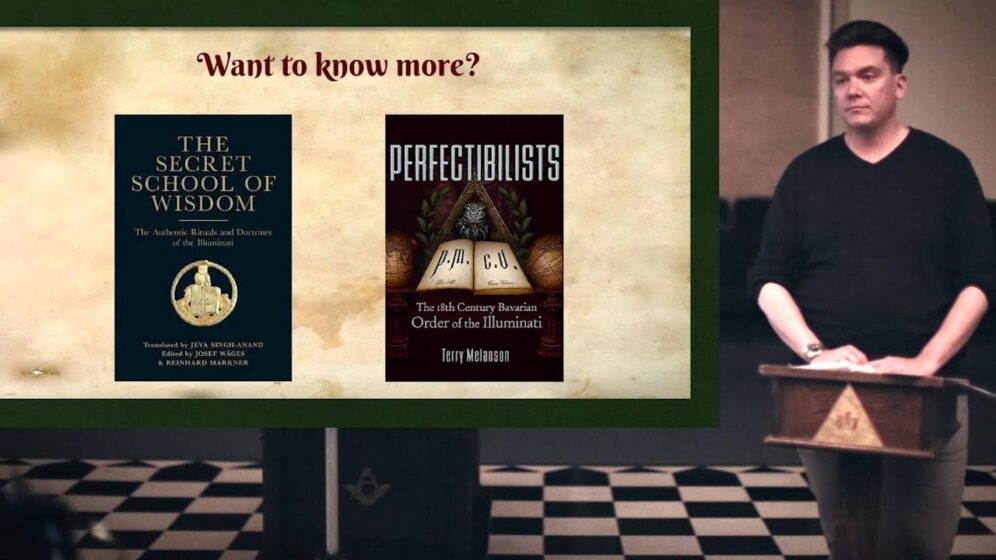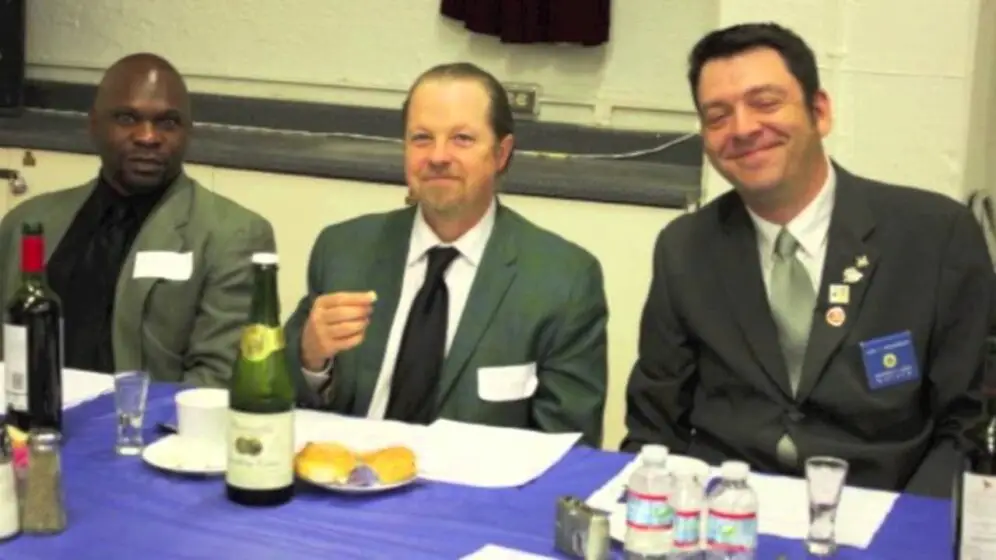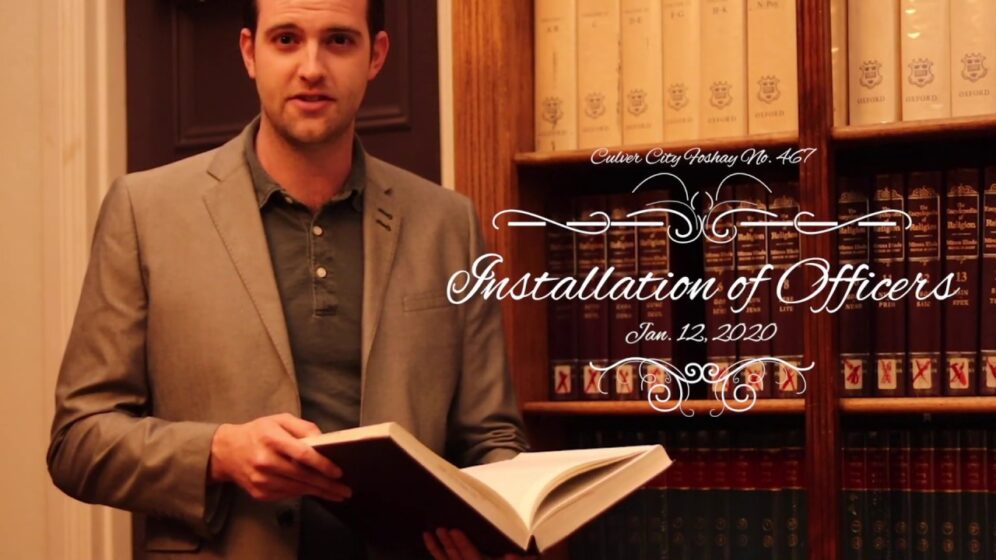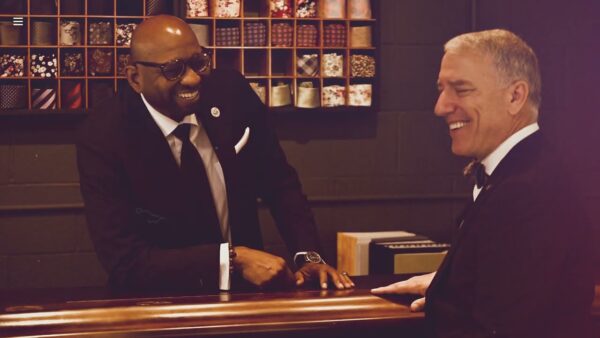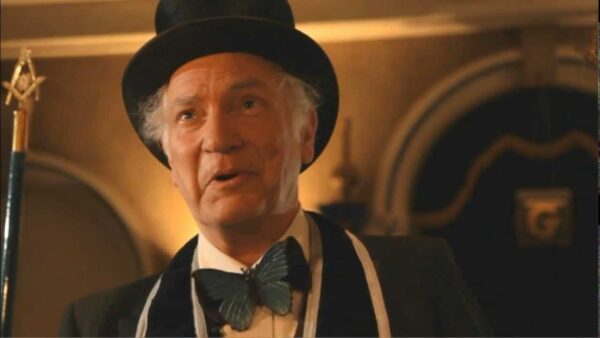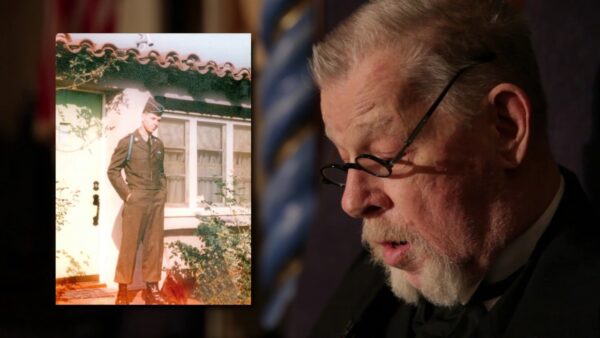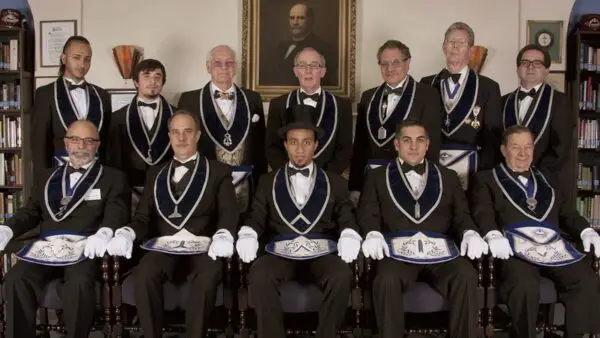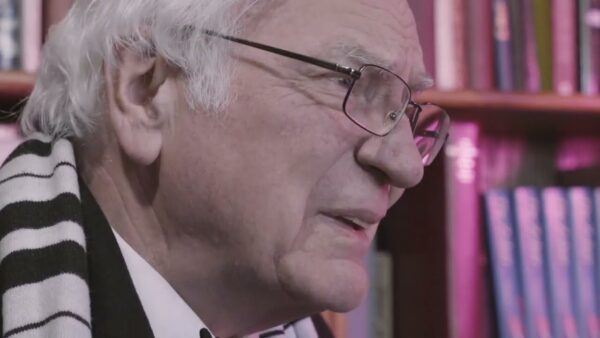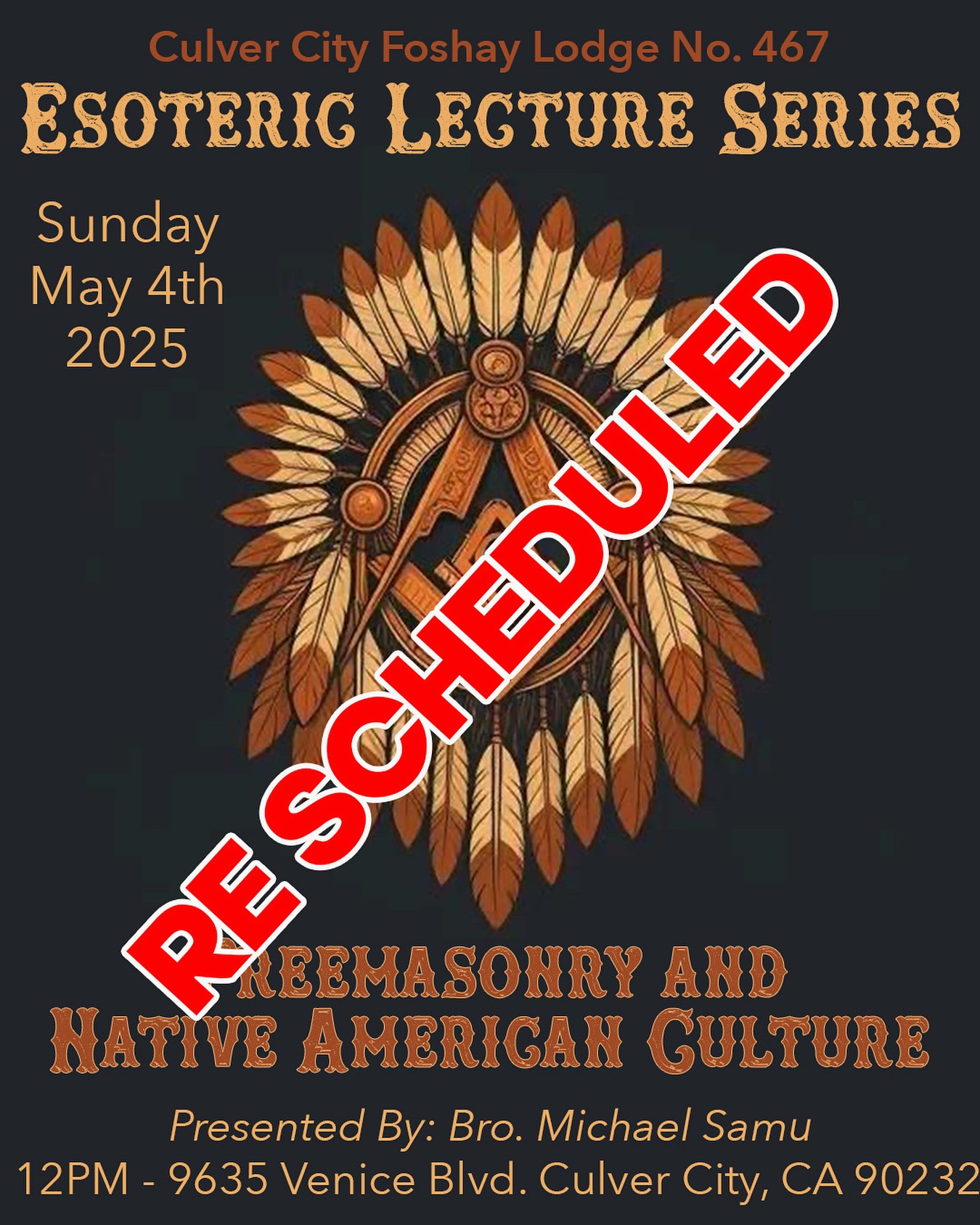FROM THE HALL OF KNOWLEDGE
The Art of Memory
The following article has been reprinted by permission of the Southern California Research Lodge, which first published it. It is cited as follows: Fraternal Review, “The Art of Memory,” (Vol. 58, No. 4, May 2017), C. Douglas Russell, Ed.
“Q & A: Merrick Rees Hamer, P.M.”
Bro. Merrick Hamer, P.M. is a native Californian, 33o Masonic Renaissance Man, member of several esoteric orders, actor, classically trained musician, author, poet, and speaker. In 1971 he became a Freemason in Culver City-Foshay Lodge, No. 467, F.&A.M., where he served as Lodge Master several times over. Subsequently his work, In Praise of the Mystical Light, was published by Newman University in a journal entitled Archaeopterx.
Interview by Jeriel Smith
Q (Jeriel Smith): What led you to join Freemasonry?
A: The desire to become a Freemason was a matter that occurred naturally. As a youth, at age sixteen, I was persuaded by a friend to join the Order of DeMolay. Steady involvement in a youth fraternity that receives its inspiration from American Freemasonry, had prepared to make the profound decision to petition a lodge of Free and Accepted Masons. I selected Culver City-Foshay Lodge, No. 467, which held sponsorship over my DeMolay chapter. My father was a DeMolay in his youth and my grandfather, with whom I held a strong affinity, was a Freemason. Collectively, these factors, with an unusual metaphysical bent, contributed to my decision to become a Freemason.
Q (Merrick Hamer): How long have you been a Master Mason?
A: Since I was raised to the sublime degree of the craft 27 February, 1973, I have been a Master Mason for forty-four years.
Q: What has been your involvement in various Masonic bodies?
A: After my raising in the symbolic lodge, I was initiated, at various times, into several affiliated bodies, including: The Ancient and Accepted Scottish Rite (Southern Jurisdiction); all bodies of the York Rite; Legion of Honour of the Order of DeMolay; Royal Order of Scotland; Societas Rosicruciana in Civitatibus Foederatis (SRICF); Allied Masonic Degrees.
Q: What is your current focus in Masonry?
A: Having sat five years in its Oriental Chair, my foci have always included active support for my symbolic lodge. Culver City-Foshay Lodge is a vibrant, diverse and amicable association of unique brothers, generously sharing their ideas. Indeed, it is a lodge that I have helped to shape and that has helped to shape me. It has pursued the deeper, esoteric nature of the craft; and it began this pursuit at a time when it was daring to do so. It is celebrating its 100th anniversary this year. My present foci also include staged conferrals of the Degrees of the Ancient and Accepted Scottish Rite, serving both the Los Angeles and Pasadena Valleys in California. It is perhaps my involvement with the Scottish Rite that has earned my reputation for a capacity in memorization and refined delivery of ritual, which I believe is the essential topic of this interview. Presently, I am serving as the Junior Warden of San Juan de Los Angeles Council No. 180, Allied Masonic Degrees. My primary focus in Freemasonry embraces purposes that animates us all, the high call of charity and the fraternalism whereby we many help each other and offer encouragement to those who are yet leaning.
Q: What inspires you most about the ritual?
A: Most Freemasons will acknowledge that their craft is not a religion, nor is it intended to supplant any religious tradition under which they might have been brought up and which they continue to practice. Yet, what each perceives as the divine essence in his faith, will invariably emerge within the Freemasonic craft, in manifest ways that are understood universally. The rituals reflect what I am saying here. They are the instruments that resound the inner notions of the heart and recall from the dusty archives of the institution the Great Book of Nature and Revelation. They are the instruments that resound the concordal strains and cosmic chords of life. Yet, the rituals are for naught, when they are placed in the hands of those who do not understand their transformative potential. They await the “Touch of the Master’s Hand.”*
Q: Can you please share a set of tips or techniques for memorizing ritual?
A: Masonic ritual, to many participants, means the application rote memory and too often, unfortunately, it stops with that application, as though it were the whole of the ritual process. The consequence of this limited view is delivery that is mechanical and prosaic. Most learners who resort to the rote technique will group a few words together, regardless of how they fit into a syntactical structure, and when performed, their deliveries will be fraught with expressions that sound clean and precise, but lack the intended conveyance. In some cases, they suffer incoherence, because of the metered manner in which they are uttered. Excellence in Masonic Ritual will not necessarily involve the rote application, unless it is used in the early stage of memorization and is abandoned, once the application has served its purpose. Alternatives, or supplements to leaning ritual would be meaningful and associative learning.
I would recommend that the first step be to read or hear the ritual several times to determine the basic meanings and the small nuances that support the them. Metaphors and allusions often have profound traditions behind them; and these should be recognized, since meaning influences presentation. The Masonic rituals are at least two hundred years old and contain words that are unusual in modern speech; and these should be carefully studied, to assure that they will be delivered with an understanding of their usage at the time the rituals were conceived. The next step would be group the words of the rituals by phrases or complete sentences, depending on length for the memorization process to begin. It is important that the words of each group have syntactical relationship. This way, the rote process will work with distinctive speech phrasing, rather than with a merely a pulsated repetition of words that will be difficult overcome, once memorization has been accomplished. Some learners will memorize by association and identify words or phrases with objects or concepts. This can be very effective during this early phase, yet the associations should be abandoned after they have served their purpose, so as not to become hindrances inconsistent with later efforts to carryout interpretation. Once the groups are committee to the memory, the next step should be delivery in a fashion that is natural to speech. This requires that the learner suspend his rote efforts and analyze each phrase for its logic, and to deliver it as though he were addressing a person in a real-life setting. One should observe carefully the roles of nouns, pronouns, verbs and punctuations to ensure that they are logically applied. This will resolve problems with monotony and superficiality.
Q: How do you move from learning the words to internalizing the meaning?
A: Internalizing may be accomplished in different ways and it likely will vary in accordance with the interpretation of the text. It will be dependent, however, upon a mind free from the burden of having to recall words. Now, many grade schoolers have learned through the rote process and its routine occurrence, the Pledge of Allegiance before the American flag. In this example, the need to recall is eventually transcended, since by constant repetition, the words of the pledge become permanently fused to the juvenile memory. Even with adults, this is the point at which one can evoke a sense of patriotism and deliver the pledge with conviction and charismatic spirit. The same principle applies to the learning of Masonic texts. The transcendence of recall dependence allows the emotive faculties to bloom and take charge; and there is no doubt that, while the rituals of Freemasonry are in part didactic, they are full of allegory and opportunity for emotive presentation.
Q: What about delivery? How do you make it come alive?
A: Everyone has the capacity for emotion, though some of us hide our emotions. Moral and social compunctions are in part responsible for the reluctance to display unrestricted emotions; and it is only fitting that emotional expressions should be appropriate to the circumstances. Yet, it is unwise to suppress the aspiration to emote in exchange for what is phlegmatic. One must overcome the fear of ridicule, if his reluctance will stifle a dynamic performance. I am not necessarily referring to “stage fright.” The craft must allow for unfettered expression and take care not to stigmatize it.
Q: How do you maintain or retain what you’ve memorized for the next time it’s needed?
A: By limiting oneself to the rote phase is not enough to accomplish retention for an enduring time, since is works initially with the short-term memory function of intellection. I advocate, therefore, the engagement of the emotive faculty. Episodic and semantic memories are far more enduring and will respond more effectively to the demand for recall. By associating the rituals with emotionally based stories or concepts (identified with what early philosophers called the humours), and by an appeal to aesthetics, one will discover ritual to bear importance commensurate with his life’s most endearing events; and recall, therefore, is assured. The intonation, inflexion, and timing of words, are comparable to our association with colours, which are attached to the semantic memory. The famous Mannheim School of the eighteenth century applied the Doctrine of Affections, in which musical formulae were devised to induced moods in music. The same idea can be applied to the formulation of rituals, through the treatment of words, phrases and stories. As a Freemason and as a musician, this is my testimony, and this is what I advocate.
*[“The Touch of the Master’s Hand” is a poem by Myra Brooks Welch, https://allpoetry.com/The-Touch-of-the-Master’s-Hand]
The following question, due to a lack of space, was not included in the printing of the Fraternal Review. It is included here, as an additional enhancement:
Q: Do you see memorizing as a mental exercise, or is there something more than that in the idea of the repository of a faithful breast?
A: The process of memorization is naturally mental, and depending upon previous training, the process will vary in difficulty for individuals. The extent to which it becomes an emotional process will bring to relevance the concept of the “Faithful Breast.” The expression is, of course, symbolic of our guard and appreciation for prudence. Additionally, it is a reference to the seat of not only are our passions and prejudices, but knowledge of beauty, charity and Brotherly Love. It is with our trusted brethren that our deeper understandings of life may be shared. Let the brethren, therefore, take their rituals to heart! Let them sing and make a joyful noise unto the Lord!
